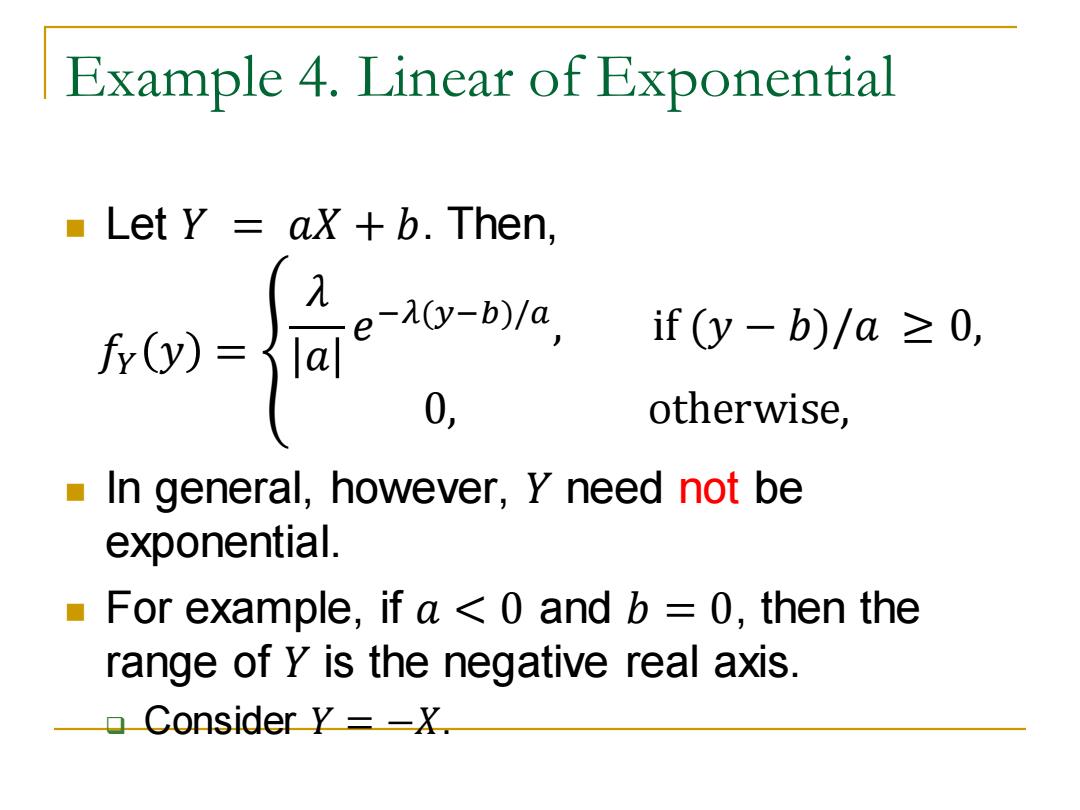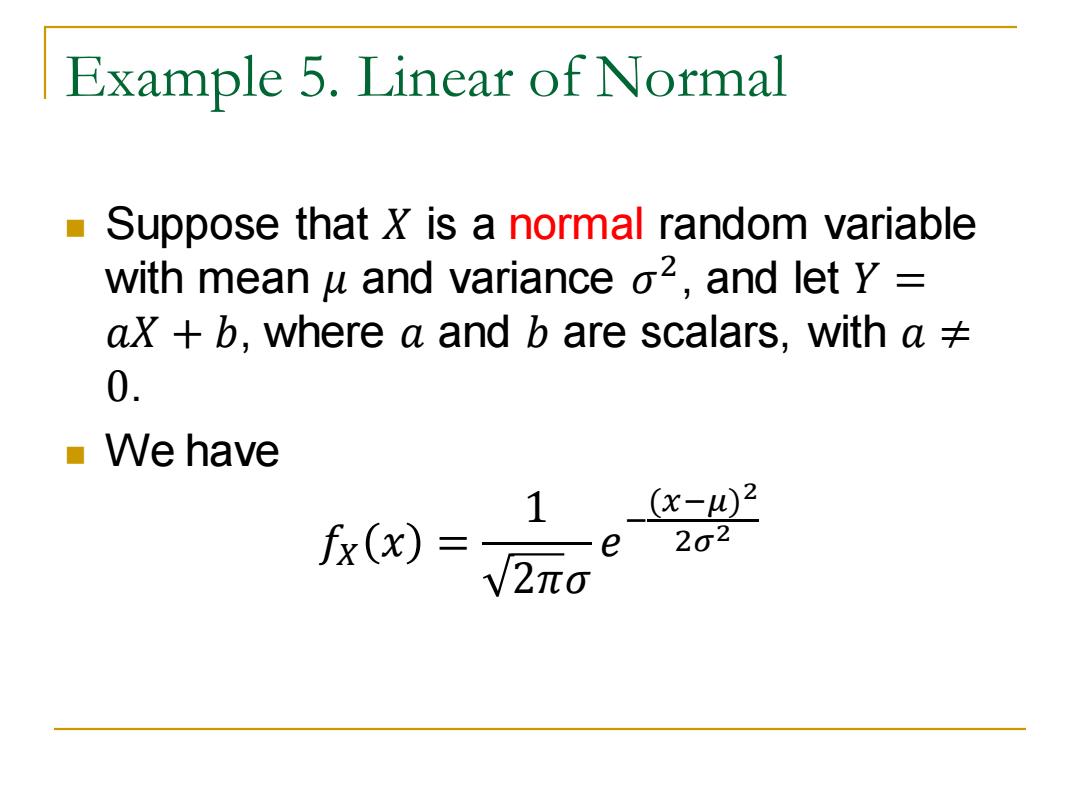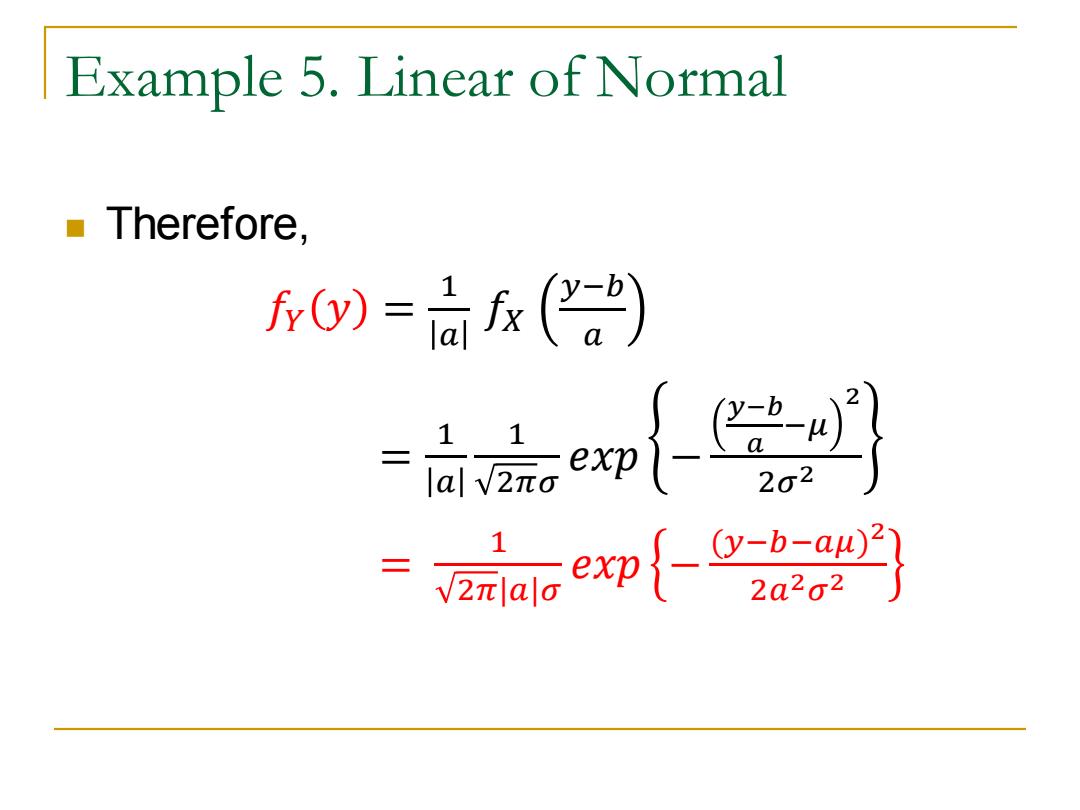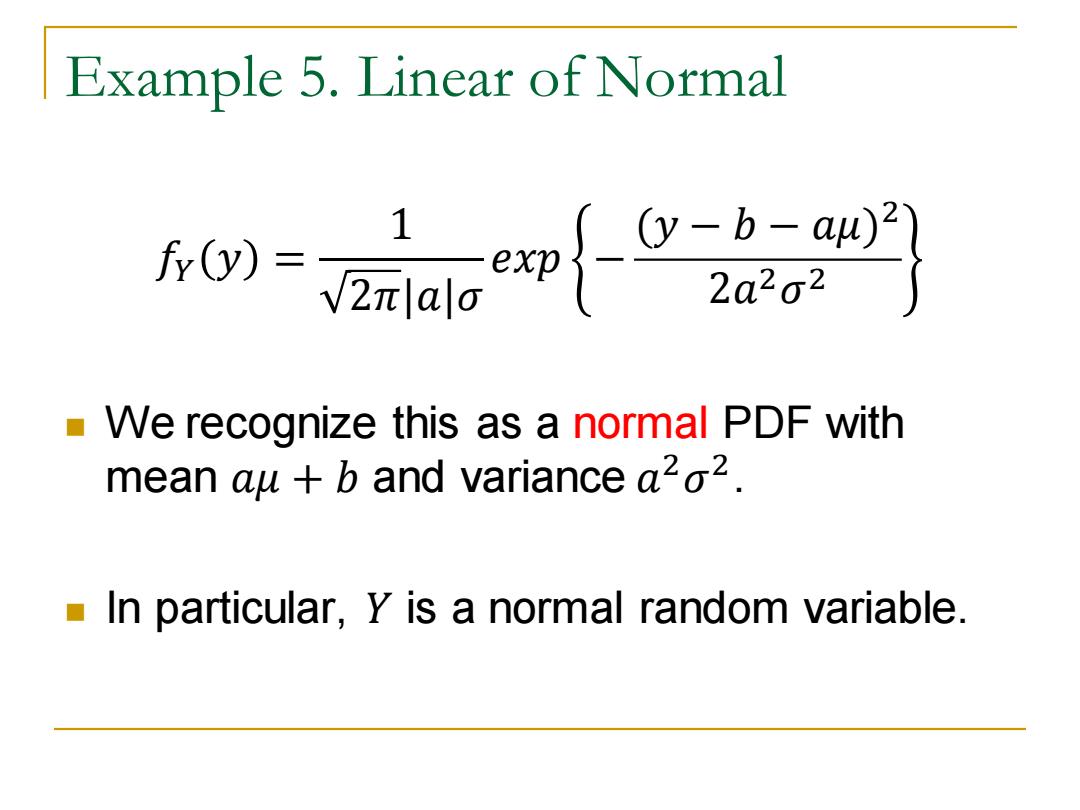
Example 4.Linear of Exponential Let Y ax+b.Then, e0-b/a, )9 if(y-b)/a≥0, 0, otherwise, If b=0 and a 0,then Y is an exponential random variable with parameter A/a
Example 4. Linear of Exponential ◼ Let 𝑌 = 𝑎𝑋 + 𝑏. Then, 𝑓𝑌 𝑦 = ൞ 𝜆 𝑎 𝑒 −𝜆(𝑦−𝑏)/𝑎 , if (𝑦 − 𝑏)/𝑎 ≥ 0, 0, otherwise, ◼ If 𝑏 = 0 and 𝑎 > 0, then 𝑌 is an exponential random variable with parameter λ/𝑎

Example 4.Linear of Exponential Let Y ax +b.Then, λ e-0y-b)/a, fy(y)=la if(y-b)/a≥0, 0, otherwise, In general,however,Y need not be exponential. For example,if a 0 and b=0,then the range of Y is the negative real axis. Consider Y=-
Example 4. Linear of Exponential ◼ Let 𝑌 = 𝑎𝑋 + 𝑏. Then, 𝑓𝑌 𝑦 = ൞ 𝜆 𝑎 𝑒 −𝜆(𝑦−𝑏)/𝑎 , if (𝑦 − 𝑏)/𝑎 ≥ 0, 0, otherwise, ◼ In general, however, 𝑌 need not be exponential. ◼ For example, if 𝑎 < 0 and 𝑏 = 0, then the range of 𝑌 is the negative real axis. ❑ Consider 𝑌 = −𝑋

Example 5.Linear of Normal Suppose that X is a normal random variable with mean u and variance o2,and let Y ax b,where a and b are scalars,with a 0. We have 1 (x-心)2 fx(x)= e 2σ2 √2π0
Example 5. Linear of Normal ◼ Suppose that 𝑋 is a normal random variable with mean 𝜇 and variance 𝜎 2 , and let 𝑌 = 𝑎𝑋 + 𝑏, where 𝑎 and 𝑏 are scalars, with 𝑎 ≠ 0. ◼ We have 𝑓𝑋 𝑥 = 1 2𝜋𝜎 𝑒 − (𝑥−𝜇) 2 2𝜎2

Example 5.Linear of Normal Therefore, )=高() 高w 二 三 amala exp) 1
Example 5. Linear of Normal ◼ Therefore, 𝑓𝑌 𝑦 = 1 𝑎 𝑓𝑋 𝑦−𝑏 𝑎 = 1 𝑎 1 2𝜋𝜎 𝑒𝑥𝑝 − 𝑦−𝑏 𝑎 −𝜇 2 2𝜎2 = 1 2𝜋|𝑎|𝜎 𝑒𝑥𝑝 − (𝑦−𝑏−𝑎𝜇) 2 2𝑎2𝜎2

Example 5.Linear of Normal We recognize this as a normal PDF with mean au b and variance a202. In particular,Y is a normal random variable
Example 5. Linear of Normal 𝑓𝑌 𝑦 = 1 2𝜋|𝑎|𝜎 𝑒𝑥𝑝 − (𝑦 − 𝑏 − 𝑎𝜇) 2 2𝑎 2𝜎 2 ◼ We recognize this as a normal PDF with mean 𝑎𝜇 + 𝑏 and variance 𝑎 2𝜎 2 . ◼ In particular, 𝑌 is a normal random variable